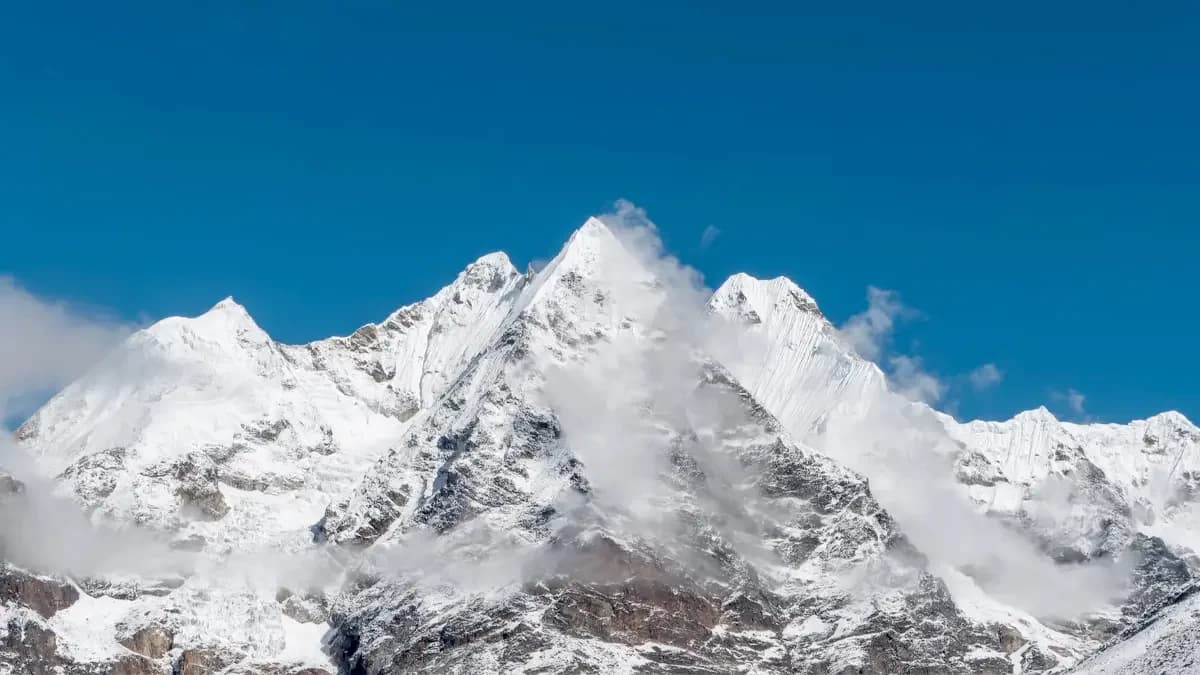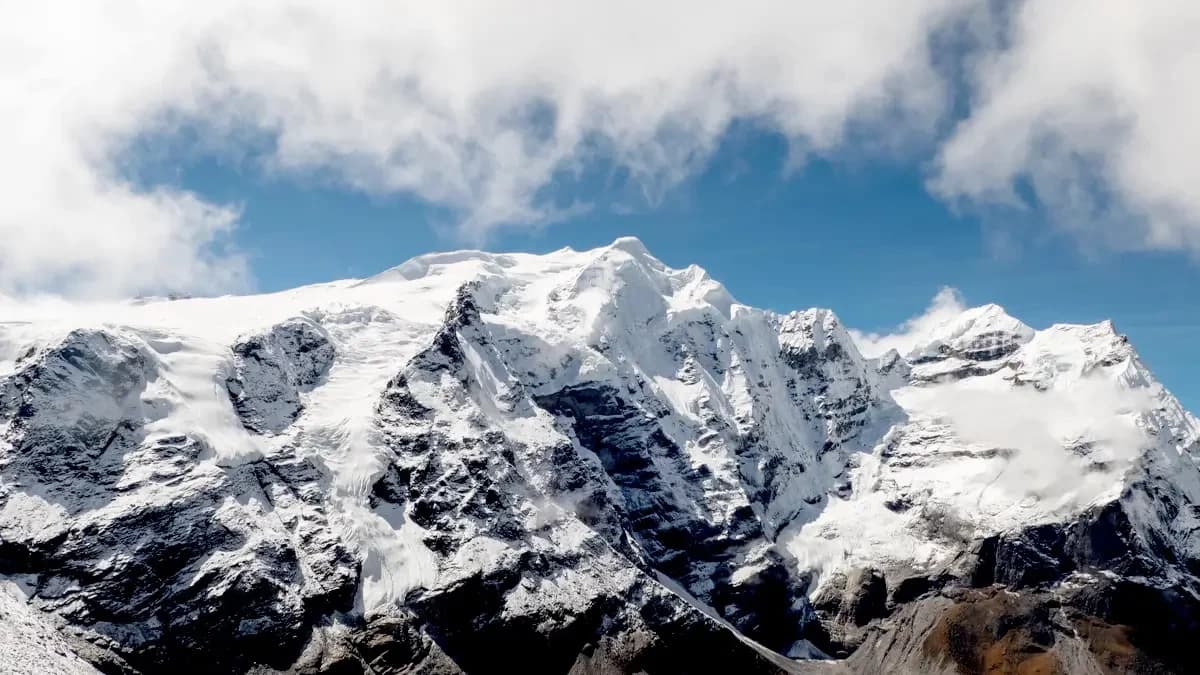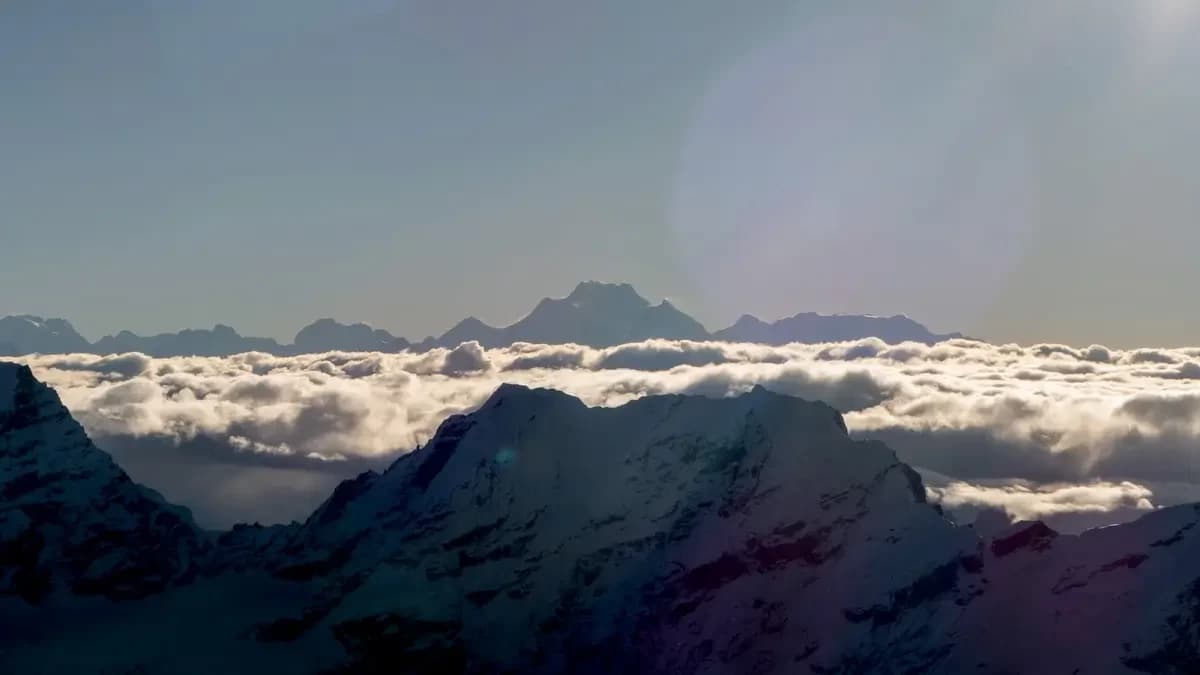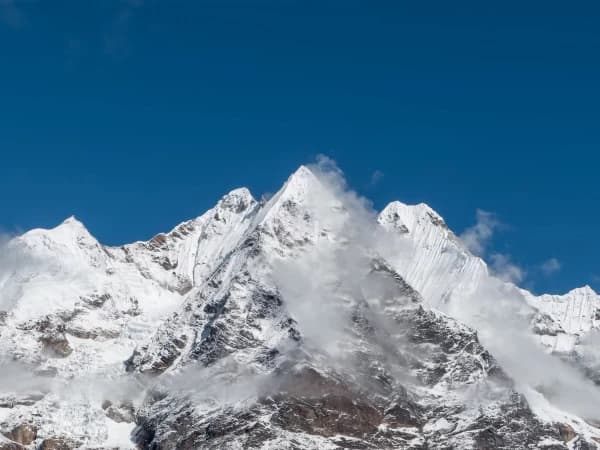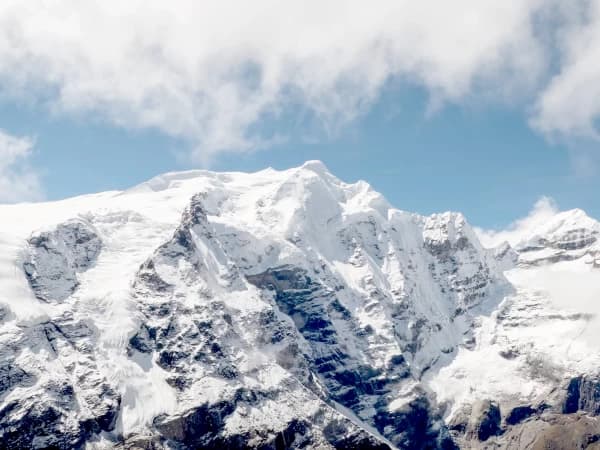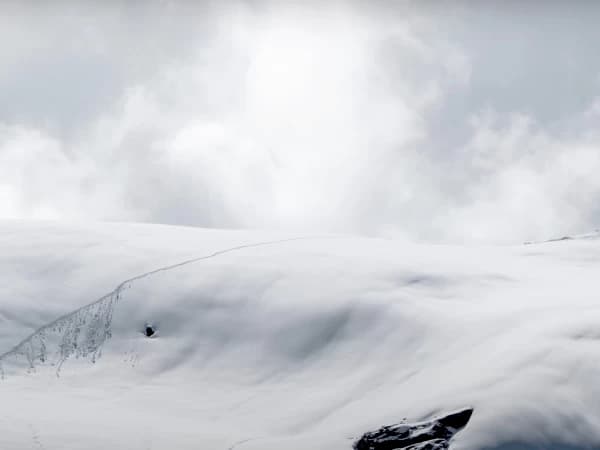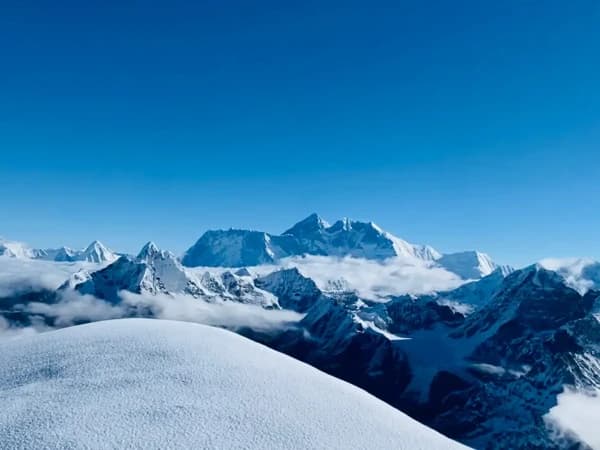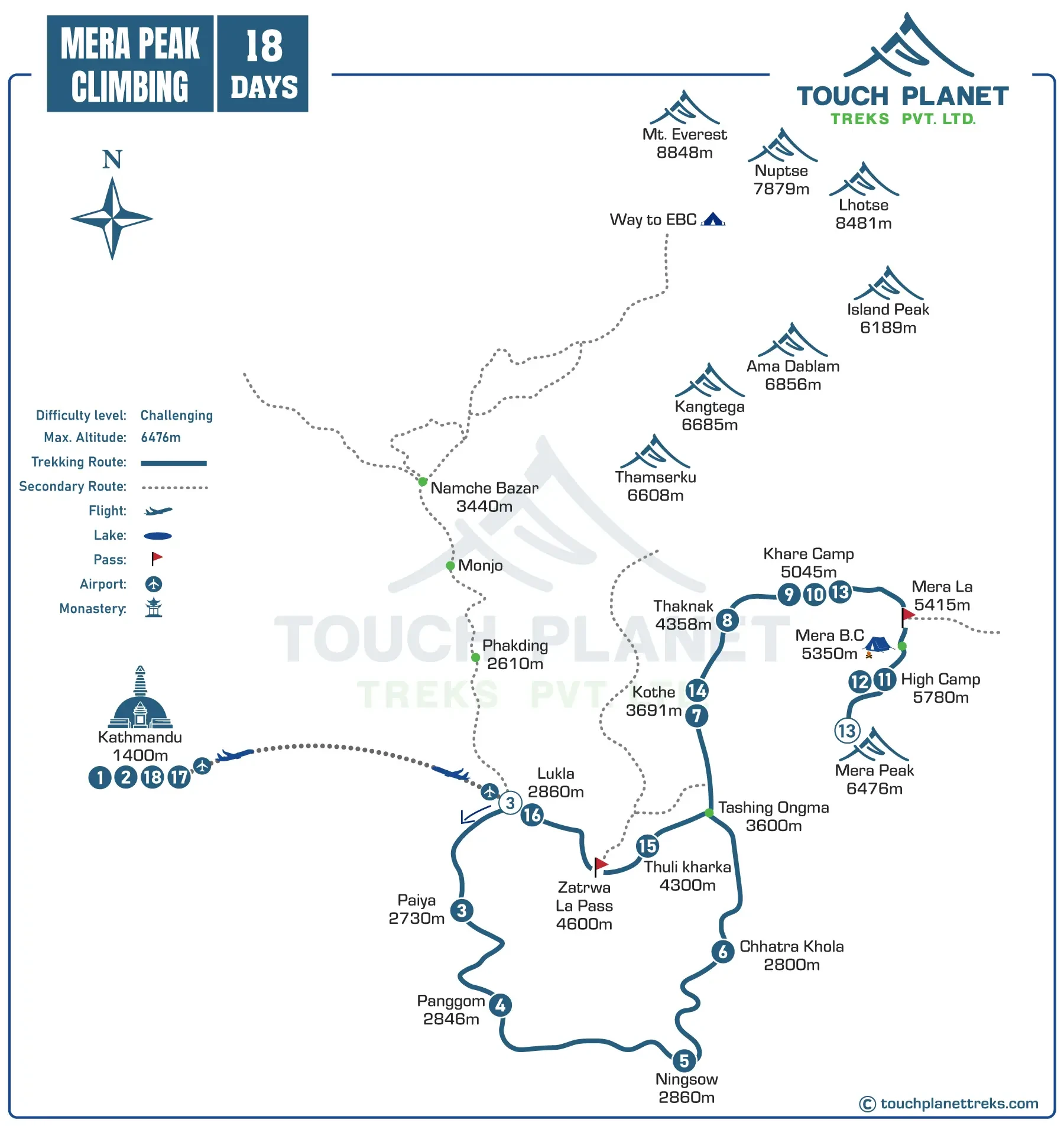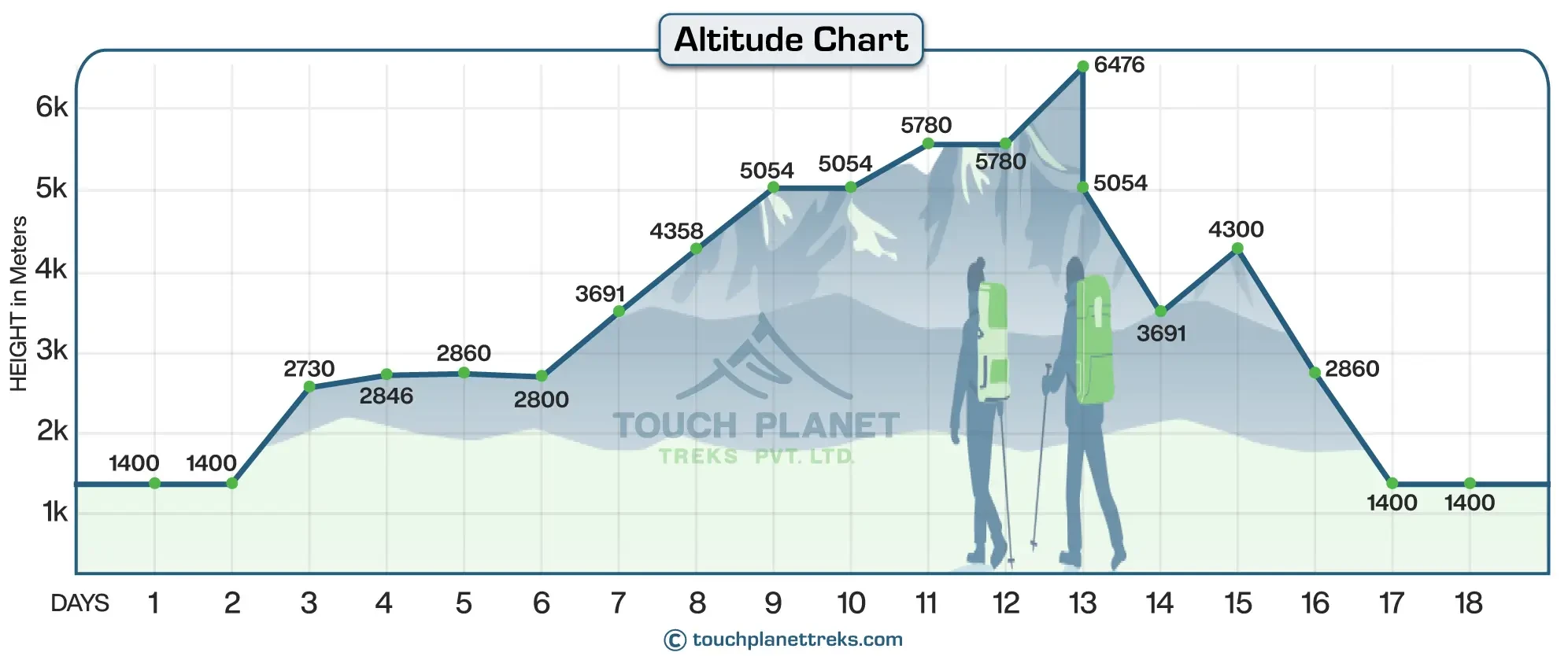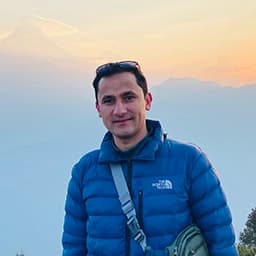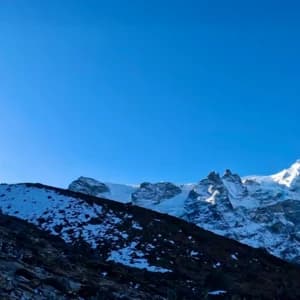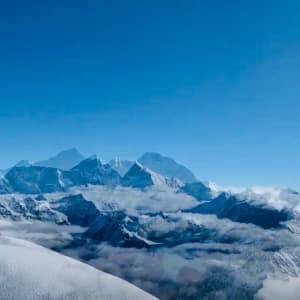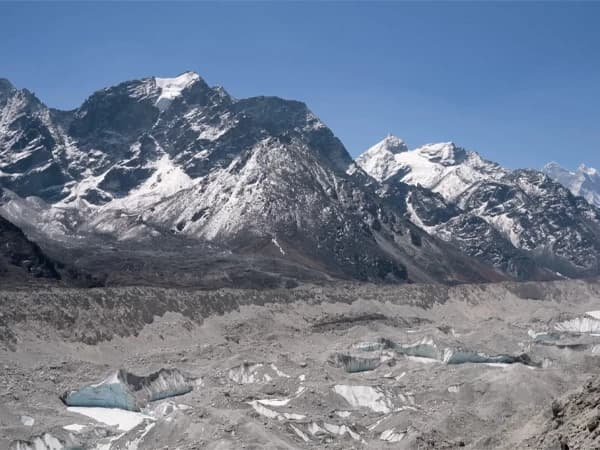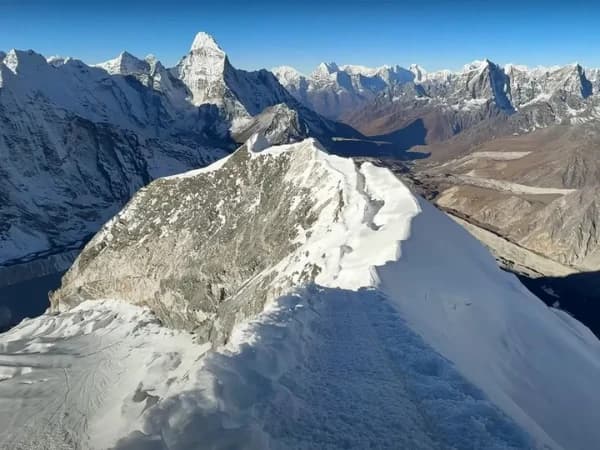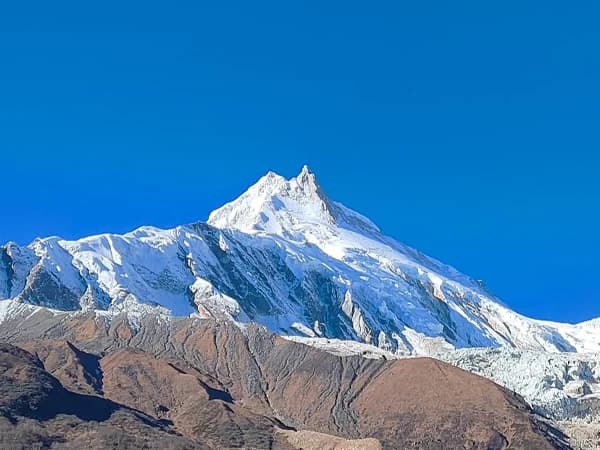The Mera Peak Climbing is an adventurous journey into the heart of the majestic Himalayas for the upcoming mountaineers, offering an unforgettable experience for those seeking their first experience of high-altitude mountaineering. Mera Peak at 6476 m is the highest trekking peak in Nepal and offers the most stunning view of Mount Everest,Kanchenjunga, and Makalu. Located in the Hinku Valley, this journey is the perfect combination of both trekking and climbing which is suitable for beginners in mountaineering from trekking.
During this enchanting adventure, you will fly to Lukla, and enjoy the scenic panoramic views of the snow-covered mountains in the Khumbu region. The climbers will trek through the stunning forests and glaciers and traditionally charming villages like Kothe, Tangnang, and Khare where the final acclimatization before the summit day. Finally, when climbers get to the summit, they are rewarded with beautiful vistas of five of the world's tallest mountains including Mount Everest (8848.86 m.), Kangchenjunga (8,526 m.), Lhotse(8,516 m.), Makalu (8,485 m.) and Cho Oyu (8,201 m.). Hence, Mera Peak is more than a climb, it’s an experience as it is the highest trek in the world with an enriching diversity and magnificent view of the Himalayan range.
Mera Peak Climbing Highlights
- Guided by trained and highly experienced mountain guides to ensure a successful and safe summit.
- One of the highest trekking peaks over 6,000 meters in Nepal, offering both adventure and scenic splendor at a glance allowing you to experience both peak climbingand trekking.
- Explore the most captivating and stunning Himalayan traditional local communities, full of culture.
- A view of the five highest 8000s in the world, including Mt. Everest at 8,848.86 meters tall.
- Experience the diverse flora and animals while taking in the stunning alpine pastures.
- Experience the overnight in established camps at Mera Peak High Camp.
- You will be able to get different cultures and stand on top of amazing, beautiful mountains as a first step in mountaineering.
- Get rewarded with summiting majestic the Mera Peak at the altitude of 6,476 m./ 21246.72 ft.
Mera Peak Climbing Overview
The Mera Peak Climbing is a thrilling adventure that takes you to the top of Mera Peak (6,476m) in the famous Khumbu region of Nepal. This climb offers an alpine challenge without the extreme demands of Everest while providing breathtaking panoramic views of towering peaks, including Everest, Lhotse, Makalu, and Cho Oyu.
Mera Peak Climbing is an adventure that combines thrill and accessibility, offering a chance to be deep inside Nepal's unspoiled wilderness. Starting from the capital city of Kathmandu, it begins with a spectacular flight to Lukla and then continues on an enchanting hike to the Hinku Valley. The trail winds through the lush rhododendron forest, scattered remote villages, and high pasture grounds, thereby offering glances of local Himalayan culture and Himalayan wildlife. When British mountaineer Col. Jimmy Roberts and his group of climbers first set foot on the summit in 1953, the history of Mera Peak Climbing officially began. Likewise, Mount Mera North once again made history in 1975 when Marcel Jolly, G. Baus, and L. Honnis succeeded in climbing it.
The climb to Mera Peak is not as tough as other peaks but it requires physical stamina and determination. Along the way, climbers pass through stunning landscapes that shift from rolling green hills to stark alpine terrain and icy glaciers. Acclimatization days are integrated into the itinerary to ensure safety and enhance your ability to adapt to the high-altitude climate.
Cheers Your Mera Peak Dream
At the top, you will get the unbeatable sensation of being face to face with five of the highest peaks in the world and is etched in your memory forever. This Mera Peak Climbing enables experienced guides, combined with thoroughly planned logistics, to test the limits and find tranquility among the sublime beauty of the Himalayas. Be a seasoned trekker or just a beginner mountaineer, the Mera Peak Climbing promises a never-before experience, where adventure, culture, and nature are beautifully interwoven in a single lifetime journey.
Let Touch Planet Treks take you on a truly unforgettable Peak Climbing, tailored to your time, budget, and endurance. Book Mera Peak Climbing for 2025 and 2026 and let us help create lifelong memories in the mountains of Nepal!
Best Time to Climb Mera Peak
The best time to climb Mera Peak is during Spring, from March to May, and Autumn, from September to November. During this time of the year in the Mera Peak, the weather usually becomes much more stable, and the skies clear up, with moderate temperatures and more enjoyable climbs.
Spring is one of the best times to climb Mera Peak. Since it offers weather conditions with moderate temperatures ranging between 15°C to 18°C at lower altitudes, with cold conditions near the summit down to -8°C to -12°C. It's not only the most picturesque time due to blooming rhododendron forests but also the season with clear skies, and therefore less rainfall minimizes risks of rain and snow. However, it's peak time for trekking and thus quite crowded in terms of trails and tea houses. But embarking on Mera Peak Climbing with us will be hassle-free, due to our pre-booked lodge-to-lodge accommodation. This is the perfect time for you if you prefer a bit of liveliness in the air and like being around people and other fellow trekkers.
It is a little bit cooler during the autumn season in the Mera Peak region, with 14° to 20° in the lower elevation and -10° or even less in higher altitudes. The dry conditions this season after the monsoon make the trail safer and there are fewer chances of any casualty in the trails. The air is fresh and with clear skies, the sight of Everest, Lhotse, and Makalu can be viewed as a dream of a photographer. Normally, autumn is a bit quieter than spring, offering a more personal experience on the trail and summit of Mera Peak.
Mera Peak Climbing Difficulty Level
Climbing Mera Peak is mostly not that difficult like other mountains, although it is considered challenging because of its height of 6,476 meters. The peak is not highly technical, though there is some glacier walking at a reasonable slop, with crampons and ice taken as a precaution. The final part of the climb is a steep 50-degree snow dome, which is usually ascended using a jumar on a fixed rope.
Mera Peak used to be rated as Alpine Graded Easy, but due to changes in the glacier conditions and the more technical final ascent, it is now graded as Alpine Grade (Partially Difficult). That means it is a bit more challenging than it once was, with some technical sections, especially in the glacier and the final climb.
The biggest challenge during the Mera peak climbing is the altitude. At the summit, the oxygen level is quite lower than the lower level, which can lead to altitude sickness for many climbers. Most climbers attempt Mera Peak without supplement oxygen, so proper acclimatization is crucial. You need to plan your trek carefully, giving your body enough time to adapt to the altitude with graduated gains and rest days that reduce the risk of Altitude Sickness.
The route you take also impacts the Mera Peak climb difficulty. The faster route goes via Zatrwa La Pass, which exposes people to higher altitude early. Though this itinerary includes a few extra days to your journey, it radically improves the chances of summiting safely.
Experience Required to Climb Mera Peak
Even though the climb of Mera Peak is not as technical and demanding as other Himalayan peaks, some high-altitude trekking experience is needed. You're off to a great start if you have completed such treks as Everest Base Camp or Kilimanjaro. The main advantages of such preparatory treks are acclimatization and conditioning your body for such climbs as Mera Peak.
If you are a beginner in mountaineering, then a short course to learn the basics will be quite useful. A climbing course in Khare before the actual ascent where you will get hands-on experience with the necessary skills.
Mera Peak is ideal for first-time Himalayan climbers or those with some climbing experience. You should be reasonably fit. However, the trek involves traveling through remote and high-altitude areas in difficult conditions.
Benefits of Booking Mera Peak Climbing
- Free airport arrival and departure transfers from/to the hotel on private transport.
- Easy booking and reservation system.
- Online trek briefing after booking confirmation.
- Open for the customized itinerary of Mera Peak Climbing.
- Free Mera Peak Climbing Map.
- 24/7 phone and WhatsApp communication at +977 9841774591
- Touch Planet Treks T-Shirt (to keep) and a Duffel Bag (for trekking Duration).
- We will provide an oximeter for blood oxygen monitoring at high elevations to detect altitude sickness early.
- Free first-aid medical kits during the trip.
- Special hospitality with personalized service and care.
- Smooth operation with following the safety measures.
- Seasonal fruits will be served after your dinner.
- A portion of your payment will go towards CSR efforts to help the local community.
- Free Excess Luggage Storage facility at Touch Planet Treks during Mera Peak Climbing.
Mera Peak Climbing Cost 2025
Mera Peak Climbing is an inclusive package that assures value and quality at each step of this fascinating journey of stepping to the top of Mera Peak. The Mera Peak Climbing costs between USD 2,200 to USD 2,500 depending on the group size and the premium service we will be providing. However, Mera Peak Climbing includes everything from certified and experienced mountain guides, and dependable porters, and all the permits required to embark the Mera Peak Climbing. The cost to climb Mera Peak is well calculated, considering the top-notch accommodation according to altitudes like cozy lodges along the routes and premium hotels in Kathmandu. Enjoy nutritious meals daily on the trek to keep you fueled throughout your adventure in Mera Peak.
The cost of Mera Peak Climbing includes all the transpositions and accommodation facilities as per our Mera Peak Climbing itinerary. The Mera Peak Climbing cost is based on the group size during the booking, quality accommodation, and fantastic meals that we will be providing during the expedition. For more information related to the cost of Mera Peak Climbing, please check below or WhatsApp us.
- For a solo climber, Mera Peak Climbing costs USD 2,445.
- If you are in a group of 2 to 7 climbers, the cost of Mera Peak Climbing is USD 2,350.
- For the climbers in a group of 8 to 14, Mera Peak Climbing costs USD 2,265.
- For a group of 15 to 20 climbers, the cost of Mera Peak Climbing is USD 2,170.
